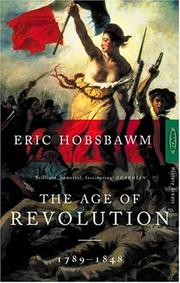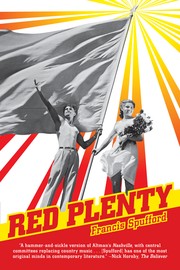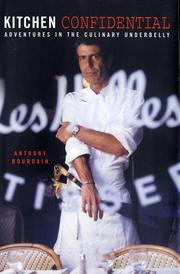Abbey is a salty man, not always the most kind, but he wrote some beautiful things in this book.
Yes, we picked this one up due to the bigolas dickolas tweet and listened to it on a road trip. It was good! I enjoyed how the "written" correspondence between the two characters was used to tell the story. It was always fun to see where the next letter would be hidden.
This is a long one I'd been slowly working through for the past year or so. It's a sprawling book that covers the better part of a century, and ranges widely in its topics and geography. At the core of the book is Hobsbawm's conception of the "Dual Revolution", i.e., a joint eruption of historical forces in the form of political upheaval caused by the French Revolution, and technological advances unleashed with the Industrial Revolution. As told by Hobsbawm, amidst this swirling of change, capitalism and conceptions of the modern liberal state were crystalized. In order to gain space to delve deeper into their topics, it often feels like historical works consider periods/events like the French and Industrial Revolutions separately. This book differs in foregrounding how these changes overlap, and influence each other as they progress. It's ambitious in what it's tackling, but in doing so it engages with complexity that other works avoid.
Mattie's comics are clever and funny, they were one of the reasons I subscribed to the Nib (now defunct, RIP). This is a graphic novel that follows a bachelor party gone very wrong, blending elements of cosmic horror and anticapitalist satire to poke at the hollowness of contemporary masculinity and certain aspects of male friendship.
This one mingles science fiction, history, and a novel together to tell some stories of what the Soviets hoped to realize after Stalin's death. Paraphrasing, Spufford says the book's protagonist is the idea of the planned economy, and the book serves to introduce us to people it encounters along the way; some people aiding it, others hindering it, until it meets the end of its life.
To do my best at boiling down a book that is already working hard to summarize a very large and broad topic, this book explores how a ubiquitous technology, web search, frequently replicates, reinforces, and amplifies features of racism in our society. Similar to Automating Inequality, this book is an important piece of work that criticizes the notion of algorithmic objectivity. Dr. Noble demonstrates how stereotypes of black women and girls are repeated and reinforced through keywords; that despite stated intentions and adjustments to avoid offensive results such as these, Google's underlying technology encourages and rewards the phenomena. Equally important is Noble's observation that Google's search engine suffers from a weakness of the bibliometric tools in its technological ancestry. Specifically, that node centrality/importance in a network (e.g., of internet pages) isn't a complete representation of the information that the network contains, and that tools ranking nodes in this way masks how existing hierarchies have shaped the network's construction.
Another audiobook I'd been working my way through. A classic, worth savoring. Wish he was still with us.
I recommended this book during an annual party my friends host in which we bring a book that will be randomly sent home with a different attendee. The book feels uncluttered and compact. It's organized into an introductory chapter which covers the concept of the "digital poorhouse", a concluding chapter (holding recommendations for tech workers), with the middle sections being dedicated to three case studies: Indiana's disastrous automation of its Medicaid program's administration, LA's case management system used to assess need among unhoused people seeking shelter, and PA's predictive tools for gauging threats of potential incidences of child abuse & neglect. Eubanks is compelling in her observation that technologies used to surveil and control the poor are eventually adapted and deployed upon to the rest of society. Equally compelling is her point that many of these tools are threats to basic notions of human dignity, and equal participation in a democratic society.
I first encountered Chu's writing through her essay in N+1, "On Liking Women". Chu's essay recounts her first encounters with Valerie Solanas's S.C.U.M. Manifesto and its influence on her thinking. Solanas is threaded within each chapter of Females, and as this might lead one to expect, the book feels like an extension topics that Chu touches in the essay. Chu's writing is frequently funny, and usually leaves me feeling like I'm seeing a topic from a new place. These qualities seem appropriate for a book whose thesis is "everyone is female".
If you look at maps of social or political data of Germany's Bundesländer, it's almost certain that a geographic pattern between east and west will be visible. The Deutsche Demokratische Republik (DDR) existed as a country for less than 50 years, and dissolved shortly before I was born. The book traverses the entirety of the country's lifespan, and tries to give a more holistic view of the society that was built there. As one might expect, Hoyer follows the central political figures of the DDR, and discusses the influence of the Stasi, but the care that Hoyer has put into pulling from everyday experiences of former citizens of the country throughout the book is apparent.
Here is some sci-fi that I think might struggle to be adapted to TV/film, but is so worth picking up and devouring. This book has some fairly unusual protagonists, but Tchaikovsky's strengths are illustrated in helping the audience to empathize with them. The book has the good bones of sci-fi world building, and its chapters feel snappy, despite its narrative taking place over thousands of years.
Turns out this is a series! I liked the first one so much that I immediately jumped into its sequel. I will say that I liked the first novel more; Children of Ruin feels like it plays a bit more in some common genre tropes, but its still an enjoyable read with unique characters.












